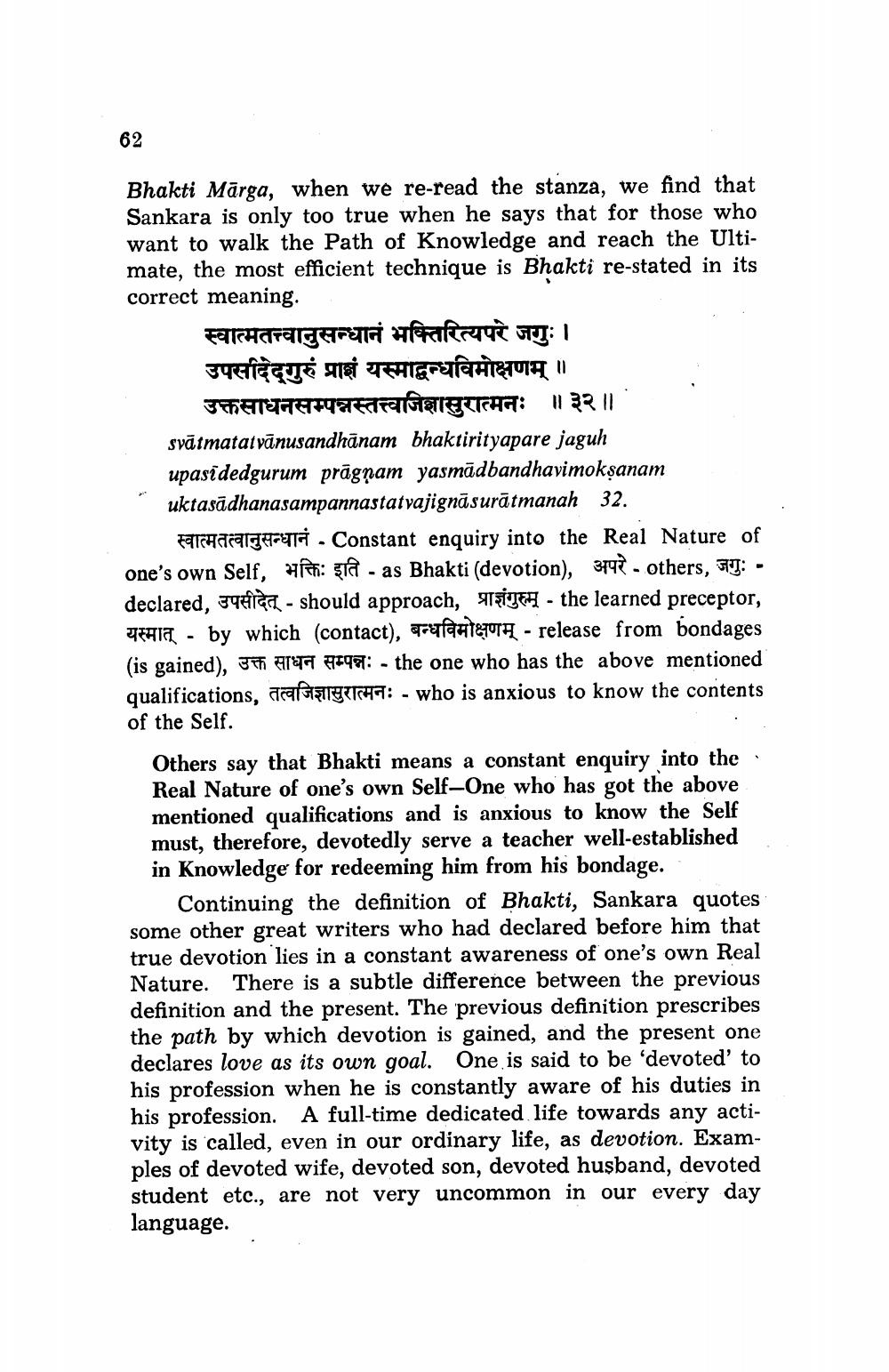________________
62
Bhakti Mārga, when we re-read the stanza, we find that Sankara is only too true when he says that for those who want to walk the Path of Knowledge and reach the Ultimate, the most efficient technique is Bhakti re-stated in its correct meaning.
स्वात्मतत्त्वानुसन्धानं भक्तिरित्यपरे जगुः । उपसदेिद्गुरुं प्राशं यस्माद्बन्धविमोक्षणम् ॥
उक्तसाधनसम्पन्नस्तत्त्वजिज्ञासुरात्मनः ॥३२॥ svātmatatvānusandhānam bhaktirityapare jaguh upasidedgurum prāgņam yasmādbandhavimoksanam uktasādhanasampannastatvajignāsurātmanah 32.
स्वात्मतत्वानुसन्धानं . Constant enquiry into the Real Nature of one's own Self, thi: sia - as Bhakti (devotion), 3742 - others, tu: - declared, JHCT - should approach, TİCEH - the learned preceptor, यस्मात् - by which (contact), बन्धविमोक्षणम् - release from bondages (is gained), 3 ANETT #F49:- the one who has the above mentioned qualifications, dealizigetch: - who is anxious to know the contents of the Self.
Others say that Bhakti means a constant enquiry into the Real Nature of one's own Self-One who has got the above mentioned qualifications and is anxious to know the Self must, therefore, devotedly serve a teacher well-established in Knowledge for redeeming him from his bondage.
Continuing the definition of Bhakti, Sankara quotes some other great writers who had declared before him that true devotion lies in a constant awareness of one's own Real Nature. There is a subtle difference between the previous definition and the present. The previous definition prescribes the path by which devotion is gained, and the present one declares love as its own goal. One is said to be 'devoted to his profession when he is constantly aware of his duties in his profession. A full-time dedicated life towards any activity is called, even in our ordinary life, as devotion. Examples of devoted wife, devoted son, devoted husband, devoted student etc., are not very uncommon in our every day language.




